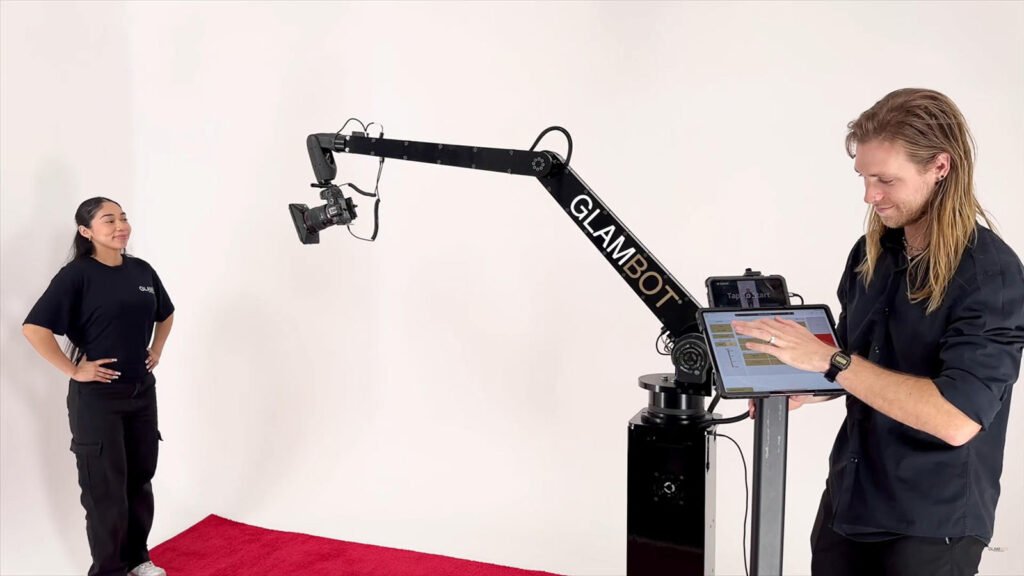Photo booths have become a popular business opportunity that offers flexible income potential. Many entrepreneurs discover they can turn this entertaining service into a profitable venture with the right approach.
The photo booth industry provides multiple revenue streams, from wedding bookings to corporate events, with opportunities to earn significant income through strategic business planning. Smart business owners find ways to maximize their earnings by targeting different markets and offering additional services.
Success in the photo booth business comes from understanding how to position services effectively and identify the most profitable opportunities. The key lies in knowing which events pay the most, what add-on services customers want, and how to build a sustainable business model that grows over time.
How Photo Booths Generate Revenue
Photo booth businesses earn money through event rentals, service packages, and add-on features. Business owners can make $250-350 per hour depending on the event type and services offered.
Understanding the Photo Booth Business Model
A photo booth business operates on a rental-based model where business owners charge clients for temporary booth setups at events. The core revenue comes from hourly or flat-rate fees for providing the equipment and attendant services.
Most photo booth businesses charge between $400-800 for a standard 4-hour wedding package. Corporate events typically command higher rates, often reaching $1,000 or more per event.
The business model works best when owners book multiple events per month. Part-time operators can generate substantial income by focusing on weekends and special occasions.
Key revenue streams include:
- Base rental fees for equipment and setup
- Attendant service charges
- Travel fees for distant locations
- Equipment upgrade charges
Business owners typically require deposits upfront and final payment before or on the event day. This helps ensure steady cash flow and reduces payment risks.
Types of Photo Booth Services
Photo booth businesses offer several service types that affect pricing and revenue potential. Traditional enclosed booths provide privacy and classic appeal for weddings and formal events.
Open-air setups work well for corporate events and parties where space is limited. These systems often cost less to transport and set up.
Popular service options include:
- Standard photo packages with prints
- Digital-only packages for social media sharing
- Video recording capabilities
- Custom backdrop designs
- Props and costume rentals
Mirror booths and 360-degree photo experiences command premium pricing. These newer technologies can increase hourly rates by $100-200 compared to basic setups.
Add-on services boost revenue per event. Custom photo templates, instant social media uploads, and branded photo strips create additional value for clients.
Profit Margins and Income Potential
Photo booth businesses typically maintain profit margins between 60-80% after covering equipment costs and labor. The initial investment ranges from $6,000 for basic setups to $25,000 for premium systems.
Full-time photo booth businesses average $3.9 million in annual revenue according to industry data. However, most operators start part-time and build their client base gradually.
Monthly income potential:
- Part-time (4-6 events): $2,000-4,000
- Full-time (15-20 events): $8,000-15,000
- Premium services: 20-30% higher rates
Operating costs remain relatively low after the initial equipment purchase. Main expenses include transportation, props replacement, and marketing.
Business owners who add photo booths to existing services like DJ or photography businesses see significant revenue increases. This approach reduces startup costs while expanding service offerings.
Offer Photo Booths at Weddings
Wedding events create strong demand for photo booths because couples want memorable experiences for their guests. Business owners can build steady income by focusing on this market through targeted marketing, custom packages, and professional partnerships.
Targeting the Wedding Market
Wedding couples spend between $20,000 to $35,000 on average for their big day. They often allocate 8-12% of their budget for entertainment and photography services.
Photo booth rentals typically cost $400-$800 for a 4-6 hour wedding event. Many couples view this as a reasonable expense for guest entertainment.
Key marketing channels include:
- Wedding websites like The Knot and WeddingWire
- Social media platforms showing booth setups and guest reactions
- Wedding expo booths with live demonstrations
- Google ads targeting local wedding searches
Couples book photo booths 6-12 months before their wedding date. Early marketing helps capture bookings during peak planning periods.
Spring and fall months see the highest wedding demand. Summer weekends also book quickly in most regions.
Customizing Packages for Wedding Day
Wedding photo booth packages need specific features that match the event style. Basic packages should include 4-6 hours of service, unlimited photos, and a printer for instant photos.
Essential package elements:
- Custom backdrop matching wedding colors or theme
- Props related to the couple’s interests or wedding style
- Digital gallery with all photos for easy sharing
- Guest book option using printed photos
Premium packages can include video messages, custom photo templates, and extended service hours. Some couples pay extra for attendants who help guests and manage the printer supplies.
Pricing tiers work well:
- Basic: $400-500 (standard backdrop, basic props, printer)
- Premium: $600-700 (custom backdrop, premium props, attendant)
- Deluxe: $800-1000 (multiple backdrops, video features, extended hours)
Props should include wedding-themed items like “Mr. & Mrs.” signs, fake wedding rings, and romantic sayings on sticks.
Networking With Wedding Planners and Venues
Wedding planners influence many vendor decisions for their clients. Building relationships with local planners creates steady referral income.
Planners appreciate vendors who arrive on time, set up quickly, and handle problems without bothering the couple. Reliable service leads to repeat recommendations.
Effective networking strategies:
- Offer planners a small referral fee for each booking
- Provide business cards and brochures for client meetings
- Attend local wedding professional networking events
- Share high-quality photos of booth setups for their portfolios
Wedding venues often maintain preferred vendor lists. Getting on these lists requires meeting their insurance requirements and setup guidelines.
Some venues charge vendor fees or require specific setup times. Understanding these rules helps avoid conflicts on wedding day.
Building relationships takes 6-12 months of consistent contact. Regular check-ins and professional service create long-term partnerships that generate steady bookings throughout wedding season.
Expand Into Corporate and Private Events
Corporate events and private celebrations offer higher rates than typical social gatherings. These markets provide steady income streams and opportunities for repeat business partnerships.
Corporate Branding With Photo Booths
Companies value photo booths that showcase their brand identity. Business owners can charge premium rates for corporate events because companies have larger budgets than individual customers.
Custom branding options include:
- Company logos on photo templates
- Branded backdrops and props
- Custom hashtags for social media
- Digital galleries with company branding
Corporate clients often pay $350 or more per hour for branded photo booth services. Product launches, holiday parties, and team building events create regular demand.
Companies use photo booths for employee engagement and marketing purposes. The photos serve as promotional content for their social media channels.
Recurring Revenue Opportunities
Corporate contracts create predictable income for photo booth business owners. Many companies book the same vendor for multiple events throughout the year.
Building relationships with event planners leads to steady bookings. Hotels, conference centers, and corporate venues often recommend trusted vendors to their clients.
Types of recurring corporate events:
- Annual holiday parties
- Quarterly team meetings
- Product launch events
- Awards ceremonies
- Trade shows and conferences
Some business owners secure monthly contracts with large corporations. These agreements guarantee consistent revenue and help with business planning.
Marketing for Private Parties and Celebrations
Private events like milestone birthdays and anniversary parties command higher prices than standard celebrations. Wealthy clients pay premium rates for personalized service.
Effective marketing strategies include:
- Partnering with luxury event planners
- Showcasing work on Instagram and Pinterest
- Offering package deals for multiple events
- Creating referral programs for past clients
Milestone celebrations generate repeat customers over many years. Families often book the same photo booth business for graduations, weddings, and anniversary parties.
Wedding vendors provide valuable referral sources. Building relationships with photographers, caterers, and venues expands the client base significantly.
Monetize Add-Ons and Upsell Opportunities
Photo booth operators can boost profits by offering physical prints and branded merchandise alongside digital features that connect to social media platforms. These add-ons create multiple revenue streams beyond basic rental fees.
Selling Prints and Customized Merchandise
Physical prints remain one of the most profitable add-ons for photo booth businesses. Customers often want tangible keepsakes from special events.
Operators can offer different print sizes and formats. Standard 4×6 prints work well for most events. Larger 5×7 or 8×10 prints command higher prices for weddings and corporate functions.
Print pricing options:
- Single prints: $2-5 each
- Print packages: $15-25 for 10 prints
- Unlimited prints: $50-100 per event
Custom merchandise creates additional revenue opportunities. Popular items include magnets, keychains, and stickers featuring guest photos. These products typically cost $1-3 to produce but sell for $5-15.
Event-specific branding adds value. Wedding couples often pay extra for prints with their names and wedding date. Corporate clients want company logos on photo strips.
A quality printer is essential for this strategy. Dye-sublimation printers produce professional results that justify premium pricing.
Incorporating Digital and Social Media Features
Digital features appeal to younger customers who share content online. These options often have lower costs but can generate significant revenue.
Social media integration allows instant sharing to platforms like Instagram and Facebook. Operators can charge $25-50 per event for this feature. The technology costs are minimal once set up.
Email delivery services let guests receive digital copies immediately. This service typically costs $1-2 per guest but requires no physical materials.
Custom digital backgrounds and filters create premium experiences. Photo booths with green screen technology can transport guests to any location. These upgrades often add $100-200 to rental packages.
QR code galleries provide easy access to all event photos. Guests scan a code to view and download images. This feature encourages social sharing while generating additional revenue through download fees.
Diversify Services for Growth
Growing a photo booth business requires expanding beyond basic picture-taking services. Business owners can increase revenue by adding innovative software features, creating themed packages, and building strong referral networks.
Innovative Photo Booth Software and Features
Modern photo booth software opens new revenue streams for business owners. 360-degree video booths command higher rental prices than traditional photo booths. These spinning camera setups create shareable social media content that clients love.
Green screen technology lets customers transport themselves to any background. A business owner can charge extra for custom digital backdrops that match event themes.
Digital props and filters reduce setup time while increasing engagement. Clients can add virtual hats, glasses, or animations to their photos without physical props.
Data capture features provide additional value to corporate clients. The software can collect email addresses and generate leads for the hiring company.
Instant social media sharing keeps guests engaged longer. Photo booths that automatically post to Instagram or Facebook create buzz for both the event and the photo booth business.
Offering Themed Packages
Themed packages allow business owners to charge premium rates for specialized services. Holiday packages work well for Christmas parties, Halloween events, and New Year celebrations.
Wedding packages should include custom backdrops, props that match the color scheme, and branded photo strips with the couple’s names. Business owners can partner with wedding planners for regular referrals.
Corporate packages focus on team building and brand promotion. These might include company logos on photos and professional networking props.
Kids’ party themes require colorful decorations and age-appropriate props. Superhero, princess, and cartoon themes perform well for birthday parties.
Each themed package should cost 20-30% more than standard rentals because of the extra preparation time and specialized equipment required.
Building Brand Awareness and Referrals
Strong referral networks drive consistent bookings for photo booth business owners. Event planners represent the most valuable referral source because they book multiple events per month.
Venue partnerships create steady income streams. Business owners can offer venues a small commission for each booking they generate.
Client testimonials build trust with new customers. Business owners should collect reviews immediately after successful events while the experience is fresh.
Social media presence showcases the photo booth business capabilities. Posting photos and videos from recent events demonstrates quality and attracts new clients.
Networking events connect business owners with potential clients and referral partners. Wedding fairs, corporate networking meetings, and chamber of commerce events provide valuable contacts.
Business owners should track which referral sources generate the most revenue and focus their relationship-building efforts accordingly.



